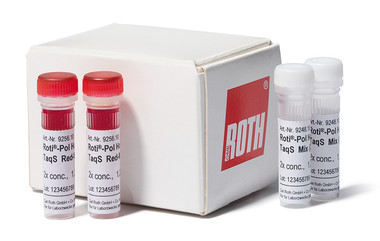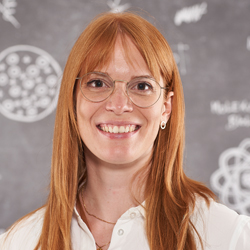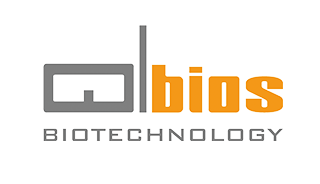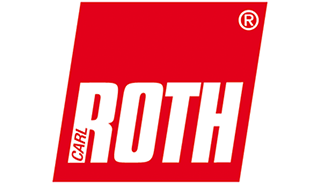New strategic partnership for DNA polymerases

The new range of Roti®-Pol DNA polymerases was developed by Q-bios GmbH and is continually optimised on the basis of current research. Each batch is produced, tested and documented in detail by Q-bios GmbH itself, whereas the end-customer sale is carried out on the basis of our long-term experience by Carl Roth GmbH + Co. KG.
In the new strategic partnership the Q-bios GmbH creators' well-founded specialist knowledge of molecular biology is combined with the broadly based sales and service structure of Carl Roth GmbH + Co. KG. Our customers thus benefit from excellent, consistent product quality and technical advice, even in event of difficult questions relating to application, and the usual rapid delivery and top-quality service.

The ROTI®Pol polymerases guarantee our customer what is really relevant for PCR: an excellent product quality and safety for application. The colleagues at Q-bios, our partner and manufacturer, belong to the top producers of DNA polymerases. At last, this cooperation allows us to offer our customers a fantastic range of the most important PCR enzymes.
Dr. Frau Dr. Hacker
Gestion de produits Life Science
Dans le panier
Our Roti®Pol Products
Q-bios GmbH
Q-bios GmbH was founded on 27.05.2009 by molecular biologists with doctorates and is a spin-off of the Institute of Molecular Biology and Cell Biology at Mannheim University of Applied Sciences. The company is certified in accordance with ISO 9001:2015 and offers products and services for the pharmaceutical, biotechnical and diagnostics industry, as well as for academic research. Q-bios GmbH is networked with BIOPRO Baden-Württemberg (state association for bioeconomics and biotechnology, pharmaceutical industry and medical technology) and shows its strengths as a supplier and cooperation partner for companies from the field of life science.

Carl Roth GmbH + Co. KG
Established as a "grocer's-paint supplier's-chemist's-store" at Karlsruhe in 1879, Carl Roth GmbH + Co. KG today supplies labware, selected life science products and chemicals to businesses, laboratories and scientific institutions. Carl ROTH is renowned for the excellent quality of its products, its extensive product range and the special customer service it provides, including expert consultation, fair prices and short delivery times.
The polymerase chain reaction (PCR)
Since its discovery and use in heat-stable enzymes, such as Taq DNA Polymerase for example, polymerase chain reaction (PCR) is the most frequently applied method for copying DNA. PCR enable pin-point amplification of a DNA sequence with the smallest amounts of initial material where necessary.
Since the discovery of PCR in 1983 by Kary Banks Mullis, it has seen a rapid and diverse development. Initial applications of PCR were in fundamental research and the Nobel Prize Award for chemistry in the year 1993, at the latest, established it worldwide in all molecular-biology laboratories. A further development initially was the introduction of the hot-start PCR. Here, the activity of the heat-stable DNA polymerases is blocked by an antibody, an aptamer or a chemical modification at room temperature for example, but also at temperatures up to approx. 90 °C. The blocking of the enzyme activity does not take place unit the PCR mixture is heated to 92-95 °C, so the so-called hot spot provides an increased specificity for the amplification of the desired target sequence.
Further innovative developments, such as the TouchdownPCR, MultiplexPCR, NestedPCR, Real-timePCR or QuantitativePCR (qPCR) have produced a wide repertoire of techniques since then. In this way, PCR has become a standard procedure in research (cloning, gene expression analyses, mutagenesis, polymorphism analysis, sequencing, etc.) but also in diagnostics (human medicine, veterinary medicine), forensics, food analysis, GVO detection and in numerous other applications. The wide range of applications for PCR today requires numerous DNA polymerase, polymerase variants and PCR MasterMix formulations.
Since the discovery of PCR in 1983 by Kary Banks Mullis, it has seen a rapid and diverse development. Initial applications of PCR were in fundamental research and the Nobel Prize Award for chemistry in the year 1993, at the latest, established it worldwide in all molecular-biology laboratories. A further development initially was the introduction of the hot-start PCR. Here, the activity of the heat-stable DNA polymerases is blocked by an antibody, an aptamer or a chemical modification at room temperature for example, but also at temperatures up to approx. 90 °C. The blocking of the enzyme activity does not take place unit the PCR mixture is heated to 92-95 °C, so the so-called hot spot provides an increased specificity for the amplification of the desired target sequence.
Further innovative developments, such as the TouchdownPCR, MultiplexPCR, NestedPCR, Real-timePCR or QuantitativePCR (qPCR) have produced a wide repertoire of techniques since then. In this way, PCR has become a standard procedure in research (cloning, gene expression analyses, mutagenesis, polymorphism analysis, sequencing, etc.) but also in diagnostics (human medicine, veterinary medicine), forensics, food analysis, GVO detection and in numerous other applications. The wide range of applications for PCR today requires numerous DNA polymerase, polymerase variants and PCR MasterMix formulations.
